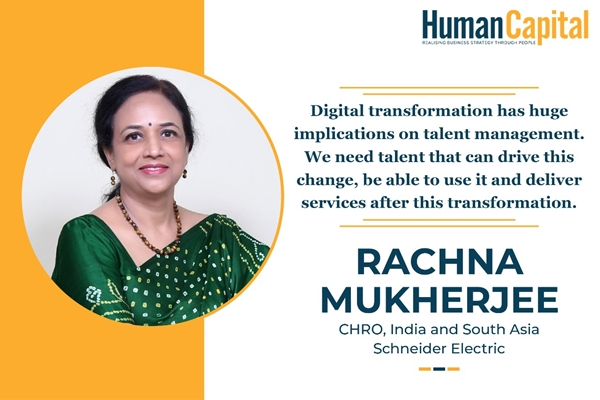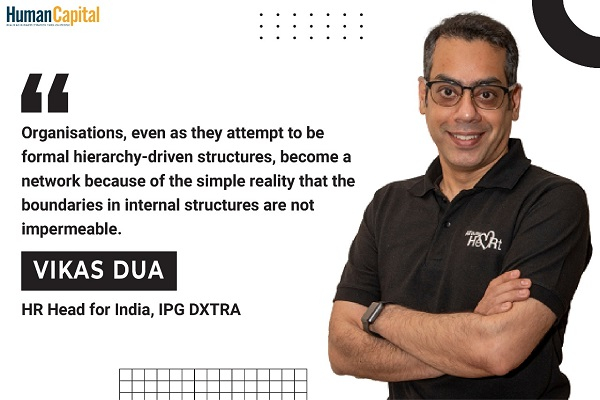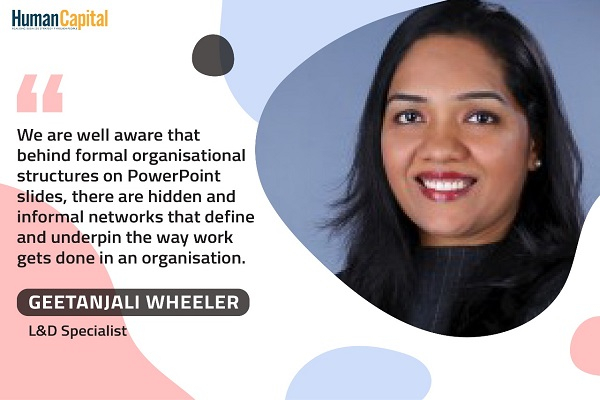Digital transformation has huge implications on talent management. We need talent that can drive this change, be able to use it and deliver services after this transformation.
The world, as we know it, is changing. This dynamism is also being reflected in the workplace, both at the employee level and also that of the organisation. There has been a major shift in motion in the last few years, and this has been further accelerated by the recent developments, reemphasising the criticality of this change.
Research proves that 80% of the companies that focus on a culture of innovation and digital evolution, sustain strong or breakthrough performance. Today, Digital Disruption is setting the narrative by redefining the workplace of the future which is agile, dispersed and contactless.
3 focus areas for competitiveness
With business dynamics evolving and changing, there are 3 areas of focus for organisations to remain competitive in the future:
♦ Digital transformation
♦ Workforce redesign and Gig workforce
♦ Remote management and flexibility
The future of HR is both digital and human. On the one hand, it is required to be adept in driving processes based on Artificial Intelligence, Augmented Reality, Machine Learning, while on the other, being focused on strategic areas that require more personal, human and intuitive interventions.
Digital transformation also has huge implications on talent management. We need talent that can drive this change, be able to use it and deliver services after this transformation. Now is the time to look for an evolved set of skills in talent, with digital skills playing a bigger role than ever before. We are seeing an increased demand for skills such as learnability, adaptability, empathy, support, and communication.
Gig workforce is here to stay
Today, digital transformation is being effectively applied to workforce redesign, with the integration of on-site and remote workforce, fulltime and gig workforce. The gig workforce is here to stay. It throws great opportunities and challenges for business organisations and allows optimum work to be done by a set of skilled professionals. The advantages of Gig working are flexibility and control over time. However, the readiness among organisations to accept this workforce is yet to evolve. Organisations will have to work to develop a more inclusive approach towards different workforces and create the right internal ecosystem.
Technology: a part of diversity
Today, organisations are visualising a future workforce that is prepared to embrace diversity in its approach, as with humans, bots and robots playing an important part in it. Today, Bots are not just a part of the hiring process, but also play a major role in learning and development, employee well-being and support etc
Organisations of the future are becoming dynamic and agile. They are designing structures, people policies and processes, governance mechanisms, aligned with the workforce of the future, flexible and remote working approaches and digital evolution in people practices space.
Organisations are focused on evolving its people strategy in tandem with digital innovation efforts with the intent of encouraging the best contributions from talent, and support businesses seamlessly in the digital journey. According to Randstad, 86% of workers are intending to upskill or reskill this year to remain competitive.
With automation changing the way we work; the World Economic Forum has also shared the top skills that organisations need to thrive in the Fourth Industrial Revolution. The focus has shifted towards prioritising complex problem solving, critical thinking and creativity as the top three skills along with adding emotional intelligence to the list. While robots can complete many tasks faster than humans, machines still lack creativity and emotional skills.
As technology revolutionises traditional business practices, with automation decreasing workload, the most in-demand employees will be those who possess the skills that cannot be automated.
Today’s decisions will become the litmus test for established policies tomorrow. Remote work, work from home, part-time work arrangements etc. will not only support agile and digital business approaches, but also align organisations with the new normal. Work from anywhere and hybrid work approach is being adopted as a permanent work arrangement as paradigms get challenged.
HR teams across industries will need to immensely focus on employee well-being and safety aligned to the new workplace. Insights driven people practices will have to be integrated to ensure employees feel connected and cared for. The focus must be on robust usage of their internal digital communication systems, to enable engagements with employees, help groups, counsellors, leaders without any in-person connects.
Digital learning now becomes an important pillar to enhance employees upskilling. A holistic approach in digital skills enhancement will need to be established. The processes for identifying as well as developing digital talent would be needed.
Organisations will have to encourage the internal mobility of their employees by digitally connecting them to scout for different cross-functional opportunities across geographies, to retain talent by offering vast professional exposure. The focus will have to be around empowered learning on multi-geography crossfunctional projects, facilitated by technology.
The world of work is changing! Artificial intelligence, machine learning, augmented reality, automation, robotics and diverse work arrangement is swiftly changing the paradigm of workforces and workplaces.
Follow and connect with us on LinkedIn, Facebook, Instagram, Twitter for latest HR news and insights.
Are you comfortable working with dispersed colleagues?
Trending
-
SBI General Insurance Launches Digital Health Campaign
-
CredR Rolls Out 'Life Happens' Leave For Its Employees
-
Meesho Announces 30-Week Gender-Neutral Parental Leave Policy
-
Microsoft Unveils Tech Resilience Curriculum To Foster An Inclusive Future
-
60% Indian Professionals Looking For Job Change Due To COVID: Survey
-
SpringPeople And Siemens Collaborate For Digital Transformation Push
-
86% Professionals Believe Hybrid Work Is Essential For Work Life Balance: Report
-
Almost 1 In Every 3 People's Personal Life Affected Due To Work Stress
-
Meesho Rolls Out Reset And Recharge Policy For Employees
-
80% Of Talent Leaders & Academics Say Pandemic Changed Skill Needs For Youth: Report
-
Hero Electric Rolls Out 'Hero Care' Program For Employees
-
Human Capital In Collaboration With ASSOCHAM Hosts Virtual Conference
-
IKEA India, Tata STRIVE Collaborate To Create Employability And Entrepreneurship Opportunities
-
SAP India, Microsoft Launch Tech Skilling Program for Young Women
-
DXC Technology, NASSCOM Collaborate For Employability Skills Program
-
Lenskart To Hire Over 2000 Employees Across India By 2022
-
Mindtree Launches Learn-and-Earn Program
-
Tata AIA Extends 'Raksha Ka Teeka' To Its Employees
-
Swadesh Behera Is The New CPO Of Titan
-
NetConnect Global Plans To Recruit 5000 Tech Professionals In India
-
Hubhopper Plans To Hire 60% Of Indian Podcasters By 2022
-
Corporate India Needs More Women In Leadership Roles: Report
-
Aon to Invest $30 Million and Create 10,000 Apprenticeships by 2030
-
Tech Mahindra Launches ‘Gift a Career’ Initiative for Upskilling of Youth
-
40% Women Prefer Flexible Working Options in Post-COVID World: Survey
-
3 out of 4 companies believe they can effectively hire employees virtually: Report
-
Vodafone , CGI and NASSCOM Foundation launch digital skills platform
-
Odisha: Bank, postal employees to deliver cash for elderly, differently-abled persons
-
Skill India launches AI-based digital platform for "Skilled Workforce"
-
Hiring activity declines 6.73% in first quarter: Survey
-
70% startups impacted by COVID-19 pandemic
-
Bajaj Allianz Life ropes in Santanu Banerjee as CHRO
-
Over 70 Percent MSMEs look at cutting jobs to sustain businesses
-
93 Per Cent employees stressed about returning to office post-lockdown
-
Johnson & Johnson India announces family benefits for same gender partners
-
Indian firms turning friendly towards working mothers
-
Welspun India names Rajendra Mehta as new CHRO
-
Wipro partners with NASSCOM to launch Future Skills platform



Human Capital is niche media organisation for HR and Corporate. Our aim is to create an outstanding user experience for all our clients, readers, employers and employees through inspiring, industry-leading content pieces in the form of case studies, analysis, expert reports, authored articles and blogs. We cover topics such as talent acquisition, learning and development, diversity and inclusion, leadership, compensation, recruitment and many more.
Subscribe Now












































Comment